ICPKP® Diploma of Musculoskeletal Rehabilitation and Reintegration
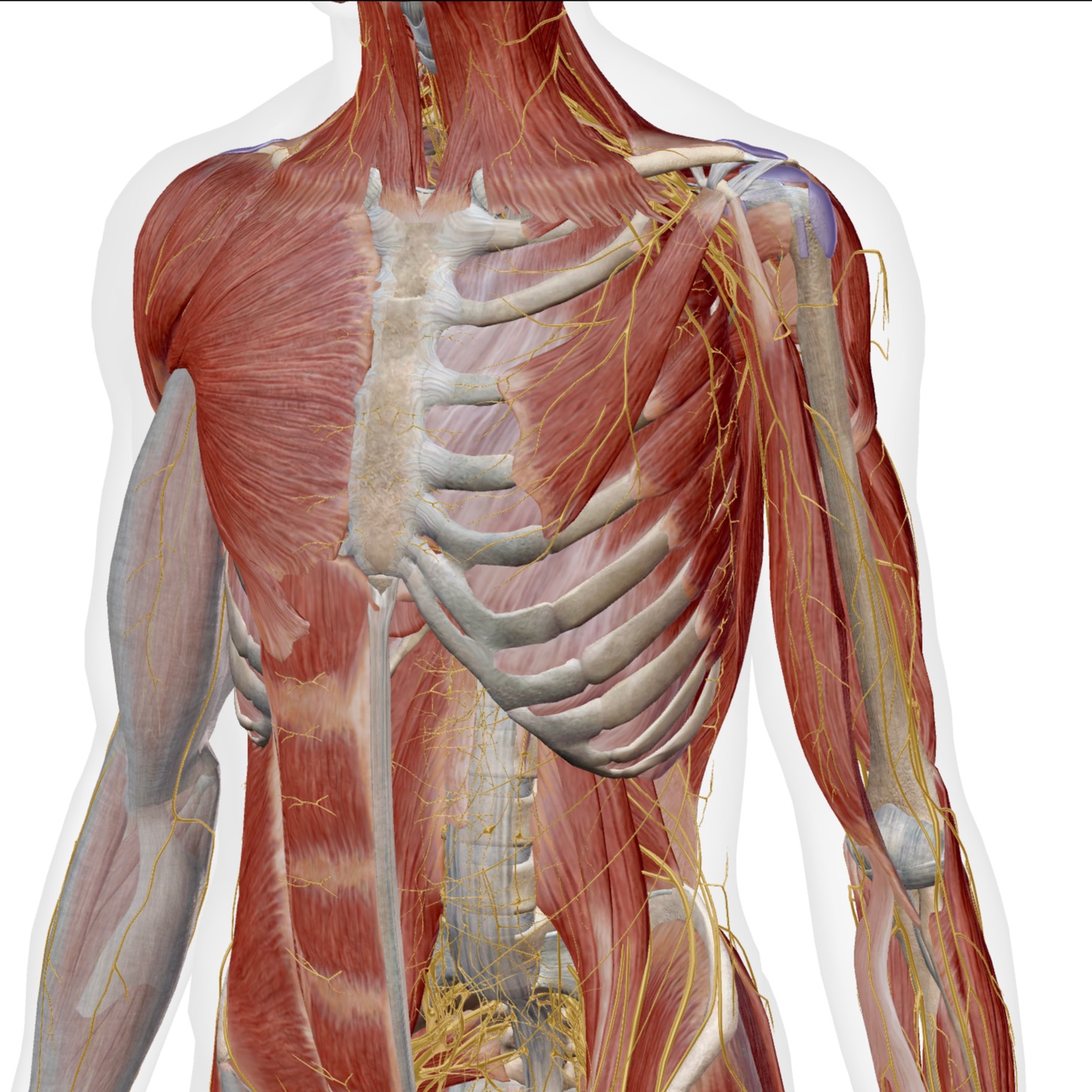
This Diploma offers a comprehensive training in advanced structural techniques for relieving muscular pain and improving function. You’ll learn Dr. Dewe’s regional muscle protocols, true functional anatomy, and innovative tools for muscle and skin treatment. The course covers the impact of touch, emotional health, and trauma on pain and movement, including hypertonicity, learning disorders, and restricted mobility. Gain expertise in treating trigger points, TMJ, joint pain, sacroiliac stress, incontinence, and sexual dysfunction. Additionally, you’ll master techniques for clearing lymph congestion in the throat, breasts, and throughout the body, helping you build a strong client base and increase referrals. This training is essential for becoming a trusted professional in the field of muscular pain relief and rehabilitation

a. ICPKP® Stress and Pain Management Certification Program – (Really it’s a prerequisite – so take it first)
Completion of BKP 106, BKP 107, RBT 201 and EMS 201 from Level 1
SPM 101 Stress Release made Easy – Half Day LDP (also in K-Power® format)
SPM 102 Epigenetic Healing cycles – Half Day LDP (also in K-Power® format)
SPM 103 Tibetan Energy & Vitality – Half Day LDP (also in K-Power® format)
b. ICPKP® Red Flags in Kinesiopractic® Certification Program – (It’s really helpful – so take it ASAP)
Learn to recognise the red flags that mean it’s time to refer your client to a medical professional.
This is a must-have certification program, which is why we include it in all PKP™ Diplomas.
What you will learn and why:
- Seven reasons why diagnosis is important – eg. is this a medical emergency?
- How and why to use standard systematic questions in history taking.
- What to do when muscle weakness is not an unlocking muscle.
- Recognising a mental disorder, and what to do next.
- How to use Flow Charts – you may save a life.

Note: this course is taught only by specialist ICPKP Red Flags Faculty members. Students who have not yet completed the prerequisite PKP™ Practitioner Certification may be permitted to take the OCT 302 Red Flags unit early if they have completed the Certificate in High Level Wellness & Vitality, at the discretion of the Red Flags Faculty member.
ICPKP® Musculoskeletal Protocol Certification Program
12 x Face to Face classes
Prerequisites: Level 1 Kinesiopractic. Must have completed BKP 106, BKP109 + RBT 201
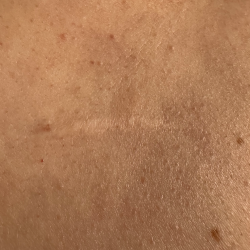
MST 201 Muscle integration & Skin Activation Protocols
2-Day In-Person Class + 14 Hours Home Practice
This unit equips you with essential skills to address muscle and skin imbalances. You’ll learn to identify meridian energy imbalances and apply corrective procedures that incorporate mental, emotional, and relational factors. Unlike traditional kinesiology, PKP focuses on the connection between muscles and stress, using contraction testing and holistic balancing techniques. Topics include skin and muscle embryology, the impact of touch therapies on mental health, and how scars affect meridian balance. You’ll explore blood chemistry, thymus-spleen energy, skin reflexes, hyoid bone function, and stress-relief techniques like temporal tapping and eye rotations. This unit forms the foundation for mastering muscle circuits, stress management, and energy healing.
MST202 Shoulder, Elbow, Hand Muscle Protocols
2-Day In-Person Class + 14 Hours Home Practice
This unit of the Kinesiopractic® (PKP) Diploma in Musculoskeletal Rehabilitation and rehabilitation focuses on four essential regional protocols for analyzing and addressing muscle problems in the shoulder girdle, upper limb, and hand. This module provides a comprehensive clinical examination of the shoulder, elbow, forearm, and hand, equipping you with the skills to assess both the physical and metaphysical aspects of injury. You will gain expertise in testing and improving function and performance across 22 muscles of the shoulder girdle, 10 muscles of the elbow and upper arm, 10 muscles of the forearm and wrist, and 10 muscles of the hand. By the end of this unit, you will have the tools to professionally manage musculoskeletal concerns and enhance mobility, making you a trusted expert in PKP muscle protocols.


MST203 Hip, Leg & Foot Muscle Protocols.
2-Day In-Person Class + 14 Hours Home Practice
This unit introduces three regional protocols focused on analyzing muscle problems in the hip and lower limb. This module provides an in-depth clinical examination of the hips, legs, and feet, integrating physical analysis with the exploration of metaphysical and emotional factors that influence injury. You will develop expertise in testing and enhancing the function and performance of 16 muscles in the hip joint, 7 muscles in the knee and leg, and 17 muscles in the ankle and foot. By completing this unit, you will be equipped to deliver professional care and support for musculoskeletal issues, enhancing mobility and performance with a holistic approach to injury treatment.
MST301 Head, Neck and Trunk Protocols
2-Day In-Person Class + 14 Hours Home Practice
The purpose of this unit is to enhance your skills and understanding of analyzing and correcting energy imbalances in the head, neck, and torso. By completing this unit, you will gain the ability to use manual muscle testing and PKP corrections to improve the function and performance of key muscle groups in these regions. Key elements of learning include facial muscles and their connection to facial expressions, eye muscles, the lingual diaphragm and tongue, neck muscles, throat muscles, the larynx and vocal fold muscles, as well as torso muscles. This unit provides the essential foundation for becoming an expert in assessing and balancing energy flow in these critical areas of the body, helping clients achieve better physical performance, emotional balance, communication and overall well-being
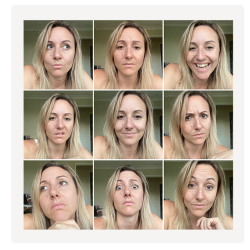

MST302 Touch, Clothes and Environment Protocols
2-Day In-Person Class + 14 Hours Home Practice
This unit focuses on identifying the impact of personal, social, and clinical touch on individuals and developing the skills necessary to release stress responses related to touching or being touched. You will explore the emotional distress that can arise from touch and enhance your sensitivity and professionalism when working with clients. Through a dress-up session, you will examine the negative effects of wearing uncomfortable clothing, understand the influence of social and cultural expectations, and learn specific Kinesiopractic® (PKP) techniques to alleviate these stresses. By the end of this unit, you will be able to discuss the cultural significance of touch, recognize the adverse effects of past experiences involving deprivation or inappropriate touch, and explore the metaphysical aspects of losing touch with others and the environment. You will also be trained in using intuitive touch to promote healing, apply PKP protocols to release hidden stress, and guide clients in creating a future action plan related to healthy touch and personal boundaries
MST303 Emotional Anatomy and Emotional Intelligence
2-Day In-Person Class + 14 Hours Home Practice
The final unit in the MST series focuses on developing Emotional Intelligence (EI) – the “street smarts” that influence how you manage your emotions, interact with others, and navigate everyday work and social environments. Studies suggest that EI accounts for up to 80% of success in life. In this unit, you will learn to identify stress areas in your clients’ emotional lives and develop the necessary skills to help them enhance their emotional intelligence in challenging situations. You will also delve into Emotional Anatomy, which involves the complex interplay of somatic interactions, emotional patterns, and behavioral responses. Through PKP techniques, you will identify and address ‘underbound’ despair, ‘overbound’ anger, and other emotional distress patterns. You will guide clients in understanding and accepting past emotional responses, exploring positive alternatives, and alleviating stress related to body shape, posture, and life stressors. This unit will equip you with the tools to clear deeply embedded amygdala emotions and help clients move beyond knee-jerk reactions, leading to lasting emotional healing and improved responses to life’s challenges.
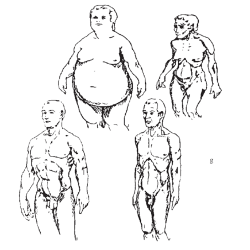
ICPKP® Hypertonic Muscle & Trigger Point Certification Program
4 modules = 8 x face to face classes
HMR 201 Hypertonic Muscle Release Basic
2-Day In-Person Class + 14 Hours Home Practice
The first of three units focused on Hypertonic Muscle Release (HMR) introduces the history and methods of Proprioceptive Neuromuscular Facilitation (PNF), a technique designed to unlock hidden potential through muscular re-education. You will explore how modern HMR evolved from PNF, learning how to test for and release over-tight muscles in different body regions. This unit focuses on the shoulder and hip areas, utilizing a gentle, passive approach similar to PNF but enhanced with precise muscle testing for added safety. Studying HMR equips you with the skills to release hypertonic muscles safely in athletes and clients, allowing for improved movement and comfort. Upon completing this unit, you will understand the development of HMR, use proprioceptive resets to reduce muscle hypertonicity, and address the hypertonic emotional metaphor. Additionally, you will be able to teach clients basic self-correction exercises, define relevant terminology, and describe indications, precautions, and causes of muscle hypertonicity.


HMR 301 Hypertonic Release – Arms and Leg
2-Day In-Person Class + 14 Hours Home Practice
The second unit in the Hypertonic Muscle Release (HMR) series builds on your skills by using PKP techniques to correct hypertonicity in specific muscles of the arm, hand, leg, and foot. This unit works in a gentle, passive manner, similar to Proprioceptive Neuromuscular Facilitation (PNF), with the added safety of precision muscle testing. You will learn how to safely and effectively help athletes and clients who struggle with muscles that won’t release when needed. This unit also equips you with the ability to teach clients basic self-correction exercises for these muscles, apply HMR to address muscle reactivity, and demonstrate its use in both sports and industry settings. By the end of this unit, you will be able to describe muscle structure, proprioceptive function, and the key factors involved in hypertonic muscle release.
HMR 302 Hypertonic Release – Head, Neck, Torso
2-Day In-Person Class + 14 Hours Home Practice
The final unit in the Hypertonic Muscle Release (HMR) series takes your skills to the next level by focusing on specific muscles of the torso, head, and neck. Working in a gentle, passive manner similar to Proprioceptive Neuromuscular Facilitation (PNF), this unit emphasizes the added safety of precision muscle testing. You will learn how to help athletes and clients safely and effectively release muscles that are resistant to relaxation. This unit also covers teaching clients basic self-correction exercises, applying HMR in educational settings, identifying priority hypertonic muscles using alarm points, and utilizing surrogate testing to correct muscle reactivity. You will gain expertise in correcting and balancing hypertonicity in muscles based on individual goals, while also deepening your understanding of muscle structure and proprioceptive function. By completing this unit, you will be fully equipped to manage muscle hypertonicity in a variety of contexts and with a range of clients.
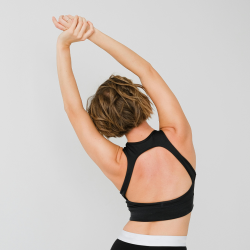
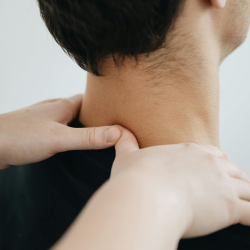
RBT301 Trigger Points
2-Day In-Person Class + 14 Hours Home Practice
In this unit, you will delve into the history of trigger point discovery while revisiting essential concepts of muscle and nerve physiology. You will gain a deep understanding of the theories behind trigger point formation, their pathophysiology, and classification, as well as the mechanisms of referred pain patterns and physical findings in clients. The unit also explores common treatment approaches from various modalities and outlines the steps involved in making informed clinical decisions. You will learn to identify underlying, often unrelated factors that contribute to chronic or unresolved trigger point syndrome, along with understanding the contraindications for myofascial trigger point therapy. By the end of this unit, you will be equipped to demonstrate knowledge of regional body trigger points, their specific pain patterns, and apply PKP trigger point techniques effectively to relieve pain in a clinical setting.
ICPKP® Pelvic Protocol Certification Program
2 Modules = 4 x face to face classes
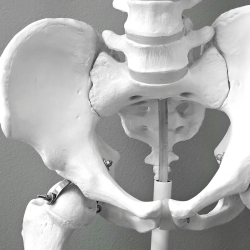
PDG301 Pelvic Postures and Sacral Balancing
2-Day In-Person Class + 14 Hours Home Practice
In this second unit, you will focus on the anatomical structure of the pelvic diaphragm and learn to identify potential issues associated with it. You will develop the skills necessary to test and balance the energy of 12 muscles in this region, as well as improve the tone of pelvic floor muscles that may have been stressed or torn during childbirth. This unit includes knowledge of specific exercises and nutritional support to enhance pelvic floor competency. You will also learn to adjust the tone of sphincters related to bowel and bladder function, providing relief from the distress and humiliation of urinary incontinence that many clients experience. By the end of this unit, you will be proficient in applying the uterine lift technique and equipped with the sensitivity and professionalism needed to address the emotional and social implications of the imbalances you detect in clients.
PDG302 Pelvic Diaphragm
2-Day In-Person Class + 14 Hours Home Practice
In this second unit, you will focus on the anatomical structure of the pelvic diaphragm and learn to identify potential issues associated with it. You will develop the skills necessary to test and balance the energy of 12 muscles in this region, as well as improve the tone of pelvic floor muscles that may have been stressed or torn during childbirth. This unit includes knowledge of specific exercises and nutritional support to enhance pelvic floor competency. You will also learn to adjust the tone of sphincters related to bowel and bladder function, providing relief from the distress and humiliation of urinary incontinence that many clients experience. By the end of this unit, you will be proficient in applying the uterine lift technique and equipped with the sensitivity and professionalism needed to address the emotional and social implications of the imbalances you detect in clients.
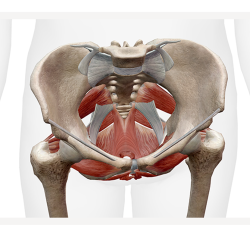
ICPKP® Ligament and Joint Management Certification Program
3 modules = 6x face to face classes
JAF 201 Temporomandibular Joint & Cranial Protocols
2-Day In-Person Class + 14 Hours Home Practice
This unit focuses on the cranial suture lines and temporomandibular joints (TMJ), areas often associated with pain, discomfort, and embarrassment due to issues like clicking jaws and dental-related problems. After completing this unit, you will be equipped to assess and restore energy balance in the TMJ and cranial sutures using advanced PKP techniques. These include rebreathing, simultaneous neurolymphatic-neurovascular stimulation, cranial inhalation and exhalation resets, sagittal suture cerebrospinal fluid techniques, and inferior occiput adjustments. These methods will allow you to address TMJ dysfunction effectively, offering clients relief and improving jaw and cranial function.
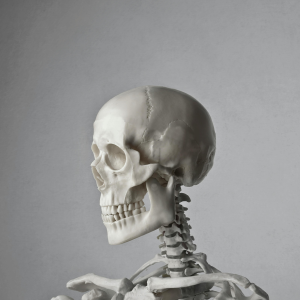
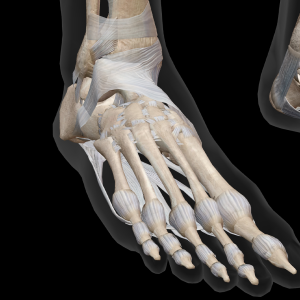
JAF 301 Ligament and Joint Protocols
2-Day In-Person Class + 14 Hours Home Practice
This unit focuses on joint and ligament dysfunction, examining how the shock-absorbing qualities of joints are compromised by trauma—whether physical, emotional, or mental—or by impaired adrenal function. You will explore the stages of adrenal decline, which result not only from physical overactivity but also from emotional overwhelm, mental exhaustion, and the spiritual consequences of not living in alignment with one’s life path or values. In PKP, you will learn that what may seem like a simple ligament sprain could actually be a sign of underlying adrenal insufficiency, requiring both local treatment and lifestyle changes for holistic healing. By completing this unit, you will develop skills to effectively assess joints in relation to adrenal fatigue or local injury, apply shock absorber techniques, perform ligament stretching (both local and adrenal-specific), and use contralateral joint ligament interlink techniques. Additionally, you will gain knowledge of nutritional strategies to support adrenal balance and overall well-being.
JAF 302 Inflexibility, Injury and Strain Protocols
2-Day In-Person Class + 14 Hours Home Practice
This third JAF unit focuses on improving flexibility and movement by addressing the underlying causes of inflexibility and postural deviations. While decreased flexibility and muscular imbalances are often attributed to stress and strain, when these issues do not respond to conventional treatments, the PKP practitioner understands that deeper tensions may be at play. For instance, tendon tightness can reflect life patterns as much as physical conditions, and the “unwinding” technique in PKP incorporates a holistic approach by addressing the mental and emotional factors behind physical tightness. This unit also explores the strain/counter-strain technique, an osteopathic approach to relieving pain caused by prolonged postural positions, which often includes emotional and mental rigidity. PKP offers unique techniques like injury recall, pitch, roll and yaw, strain/counterstrain, unwinding, homolateral muscles, CIA stretch, and shock absorber techniques to correct energy imbalances and enhance joint flexibility, providing a comprehensive solution for inflexibility.

g. ICPKP® Lymph Protocol Certification Program
2 Modules = 4 x face to face classes
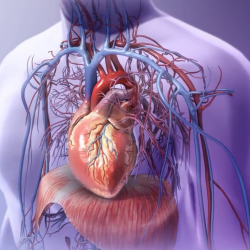
BVL301 – Valves, Viscera and Blood Vessels
2-Day In-Person Class + 14 Hours Home Practice
In this unit, you will learn how to balance the muscles and valves associated with the ascending, transverse, and descending colons, as well as the oesophageal reflex, including their nutritional support. You will explore the use of auricular therapy to assist in blood pressure balance and understand the importance of ‘thyroid-heart’ function balance for improving cardiovascular performance during exercise. The unit also covers the autonomic nervous system, cranial and para-spinal points, and how to identify organ function imbalances when organs are not working in harmony. Upon completing this unit, you will be equipped to balance meridian energy related to dysfunctional longitudinal and circular muscles of the viscera and blood vessels. This includes techniques for the ileocaecal valve, Houston folds (valve), thoracic diaphragm (oesophageal hiatus), transverse colon ptosis, blood vessel and ventricular balance (for exercise enhancement), autonomic nervous system, organ awareness, surrogate and reactive patterns, and intestinal flora balancing.
BVL302 Breast and other Lymphatic Clearing
2-Day In-Person Class + 14 Hours Home Practice
This unit focuses on developing the skills and understanding necessary to use PKP techniques for optimizing lymph flow. You will explore the history and discovery of the lymphatic system, gaining in-depth knowledge of its structure, the function of lymph nodes, and the composition and action of lymph fluid. The unit covers lymph drainage, the positioning of lymph nodes throughout the body, and the safe, effective application of PKP lymph flow techniques. By the end of this unit, you will be proficient in using the retrograde lymphatic technique and able to work with various lymphatic flow energy techniques, including those for the cervical, maxillary sinus, eustachian, mammary, and lower limb areas
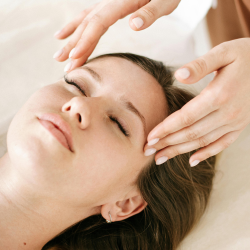
Start the ICPKP® Diploma in Musculoskeletal Rehabilitation & Reintegration.
The prerequisites for any of the units in any our Diploma’s, is Level 1 Kinesiopractic
Our Next Intake Starts August 2025
Register Your Interest and get more info
Book an Info Session

